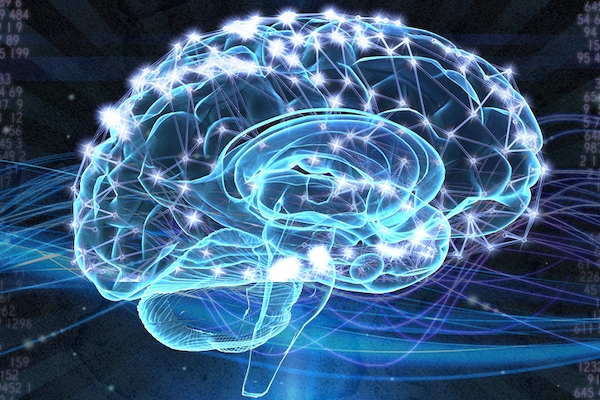The world is finally realizing that the focus on mental health needs to be prioritized in a much greater way than it has in the past. That anxiety, depression, loneliness – which is now categorized as an epidemic – and suicidal thoughts need to be taken as serious as the need to seek treatment for physical health issues.
Technology is a part of our everyday lives, in good and a not-so-good ways as social media use in tweens, teens and young people has led to depression. And last year the World Health Organization released a report recommending reducing or eliminating screentime for children. On the positive side of tech, there’s been a growth in wellness and mindfulness blogs, podcasts, apps and other forms of media sources like Seize the Awkward that offer tools for personal mental health while more and more people are becoming okay with seeking therapy.
In 2020 the development and evolution of neurotechnology is providing non-invasive treatment for cognitive disorders and other brain-related issues. “One billion people currently suffer from neurological disorders, and current treatments neglect the ways in which an individual’s physiology and health history affect their cognition,” states the summary for “Neurotech: Maximizing Health on a Cognitive Level,” a track that’s part of this year’s new program, Fantastic Future.
Then there is the potential for inserting tech into our brains as the track “The Future of Your Brain: Neural Implants and More” will present, giving a glimpse into how brain-computer interfaces will become a reality in the next ten years and where investments in new projects and startups are happening today, including Elon Musk’s Neuralink.

Criminalizing Mental Illness & Treatment for the Incarcerated
Living in Hollywood, every day I see the toil that the lack of mental health services has on our homeless population. Today the jail systems in states across the country, including Texas and California, are the largest mental health hospitals but are ill equipped to treat anyone.
Our society, those in government and policy makers have failed humans by making mental illness a crime. At the same time, many in the current prison system have suffered trauma, which often times led to their committing crimes, only to experience further trauma and abuse inside. The “Alienation: Mental Health Behind Bars” session will discuss the present state and new improvements for the incarcerated population as well as paths to advocacy. Another related session of interest, which is also presented by Energizing Health, is “(A Roof) Over Our Heads: Fair Housing & Health” a hot topic in most cities today as rising rents outpace income wages, forcing people onto the streets or into unsuitable living conditions that will no doubt have an impact on their mental and physical well-being.
Tech & Prison Comms: The Impact on Recidivism is led by representatives of the Marshall Project (recommend reading “Game of Phones”) and Human Rights Defense Center, stating, “half of all prisoners lose touch with friends and family while in prison, yet research has illustrated the importance of maintaining social connections while incarcerated in order to be successful on release.” Having a family member in the system who had his calling privileges pulled for a year, I understand first hand how this impacts those on the inside and their families on the outside. Dante Owens, co-writer of the Insight, Out series on Kaffeine Buzz, has experienced a recent disruption in access to calls having been moved from Sterling Prison to the Colorado State Penitentiary.
Well-Being & Seeking Help Goes Mainstream
As the focus on mental health grows so has the areas of mindfulness, self-care, breathwork and processes to increase our coping skills during times of stress not only in our work life but in everyday life. “Leading with Gratitude: 8 Practices for Results” is focused on improving the personal interactions in the work environment while “Burnout or Build up: Mental Health in the Workplace” will present new data on “what the most toxic cultures are today and what employers and employees alike can do to make the future of work a successful and healthier environment for all.”
There is no doubt that after attending this featured conversation between the queen of being vulnerable Dr. Brené Brown – who recently launched a new podcast, “Unlocking Us” – and Queer Eye’s Jonathan Van Ness, you’ll feel inspired and a little less heavy in the heart and mind. “Maybe You Should Talk to Someone,” presented by featured speaker Lori Gottlieb, therapist and best-selling author, who “takes us on an eye-opening, behind-the-scenes tour of the human condition…talking about the shame that imprisons us” and how sharing our real-life stories with each other benefits us and the human race.
Other Sessions of Interest:
How to Use Humor as a Mindfulness Strategy
A Future for Leadership: Transforming Trauma
Emotional Health–Impact Teens, Affect the World
Helping Vets Through Technology, Music and Health
Quiet Health Risk: Loneliness in Seniors
Optimize Your Gut, Settle Your Mind
Wellness Expo Presented by Seedlip
Recharge & Restore Yoga Session
For more sessions, programs and events taking place March 13 – 22 check out SXSW.com.



